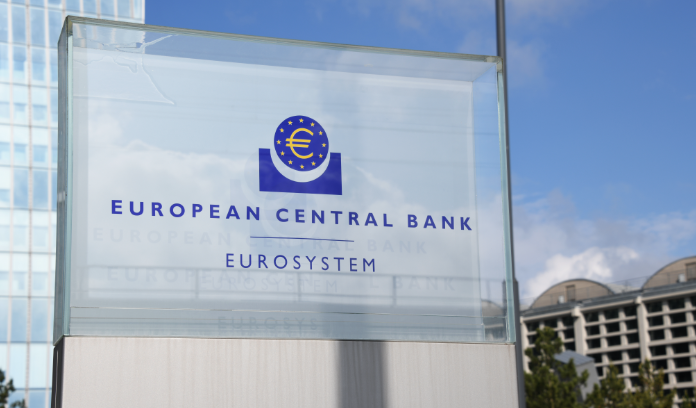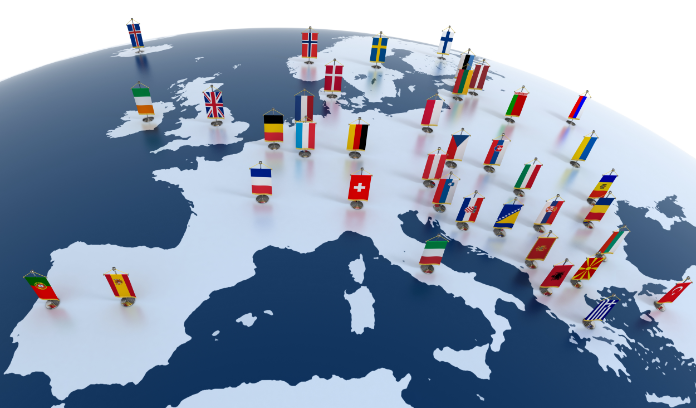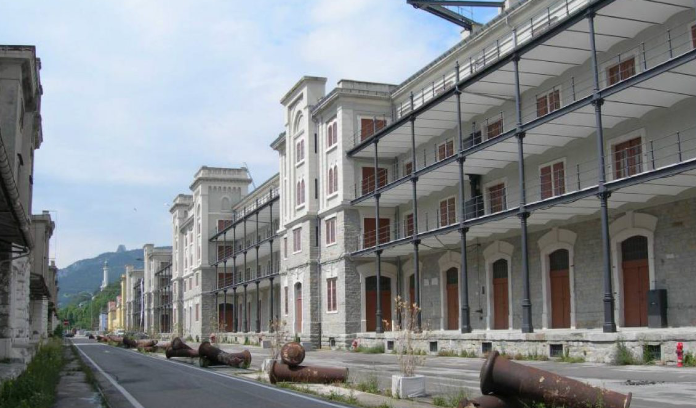The project
An Association of entrepreneurs, with the support of the main Institutions Italy is an official candidate for the headquarters of the new European Bank for Sustainable Development, which will work alongside the three existing EU financial institutions and promote and manage initiatives with sustainability as a priority objective. The procedure for the presentation of an official initiative by the Italian Government in Brussels started today in Trieste on the initiative of an association involving some of the most important entrepreneurs in the far north-east and has the support of the main public institutions, which have already expressed their support through motions and resolutions.The initiative, which is the result of work that has been conducted in the utmost secrecy for at least six months, was officially presented today in Trieste by the President of the "Sustainable Financing" Association, Giuseppe Razza, an entrepreneur specialised in the development of high-tech businesses in the field of sustainability with privileged relations in particular in Eastern European countries. A number of major business groups have already joined the project, initially representing a total turnover of more than EUR 2 billion, a turnover that will continue to rise as membership increases. The idea behind the project is rooted in a series of positions taken by the European Union, which, through a precise intervention adopted on 5 December 2019 by the EU Council, had already affirmed the need to renew the European financial architecture for development, making it stronger, more flexible, integrated, coherent, strategic and responsive to climate change and development needs. On that occasion, and at subsequent meetings at various EU levels, this need was made urgent through the European Council's invitation to its preparatory bodies to monitor progress in implementing these conclusions and to Member States to provide further guidance on the preferred way forward to consolidate the European financial architecture for development. Among the challenges set by the President of the European Commission, Ursula von der Leyen, for the future of the European Union can be counted the repositioning of the European Investment Bank (EIB) and the European Bank for Reconstruction and Development (EBRD) also in view of the problems posed by Brexit.The initiative launched by the "Sustainable Financing" Association aims to speed up the promotion of a new banking institution, whether autonomous or a subsidiary of the EIB, also in view of the fact that, at present, Italy, despite being one of the main shareholder/contributor countries of the European Union, has neither a headquarters nor a leading position in Europe's financial architecture.The project will be analysed in detail by the local institutions and then forwarded to the Prime Minister in order to formulate and negotiate the official application to the European Union through the relevant Italian institutions.

Why Trieste
It would not be appropriate to locate the headquarters of this new financial body, even if it is owned by the EIB, outside the territory of the Union, not least because another major financial body, the EBRD, is already based in London and therefore has a headquarters outside the Union; The new headquarters should not be located in a large city or in an existing financial capital (Brussels, Frankfurt, London, Paris, Luxembourg) in line with its idea of supporting climate and sustainable development policies; The current structure of control and management of European financial organisations is unbalanced on the Franco-German axis; Italy can and must be an authoritative candidate to host the headquarters of this new ESDB, since it is the only... country, of the three largest net contributors, not represented either as president or, above all, as headquarters. In Italy, Trieste could be one of the most authoritative locations, as it is one of the few European cities to boast the following fundamental characteristics for such a candidacy: The proximity to Eastern European countries; The centrality in the Mediterranean and therefore the connections with the countries of the Mediterranean, the Balkan Area and the Middle East, the main recipients of the financial support that will be allocated and managed by the new Development Bank; The free zone regime, deriving from international peace treaties and therefore with potential tax implications, which would allow the operational and financial viability with the use of particularly facilitated instruments to support the off-shore operations of this new body; American interest in the city, also in relation to the development of the Middle East economic and political colossus (Emirates-Arabia, Egypt-Jordan), with Israel and related connections; The presence in the city of some of the major scientific research institutions and international organisations, including the CEI, already manager of EBRD resources, which could support this new Development Bank; The availability of areas in Porto Vecchio on which to carry out a new and ambitious urban development project.

EUROPEAN BANKS TODAY
There are now four main European financial institutions: the European Central Bank (ECB) with headquarters in Frankfurt, Germany, and a French presidency (Christine Madeleine Odette Lagarde). The EIB's shareholders are 19 states that participate in the total capital (EUR 7.584 billion) through their central banks (NCBs). Italy has a share of 13.8%, third compared to Germany (EUR 2.00 billion or 21.4%) and France (EUR 1.55 billion or 16.6%). The European Investment Bank (EIB) with headquarters in Luxembourg and a German presidency (Werner Hoyer). Founded in 1958, the Bank finances investments to achieve the European Union's policy objectives, including regional development, trans-European transport networks, the development of telecommunications...and the energy sector, research development and innovation, environmental development and protection, and health and education. The EIB's shareholders are the 27 Member States of the European Union, with Italy holding 18.8% of the total capital. The European Bank for Reconstruction and Development (EBRD) with headquarters in London in England and a French presidency (Odile Renaud Basso). With the subscription of a capital of EUR 2.56 billion, Italy is one of the EBRD's main shareholders (second only to the United States of America, together with Germany, France and England), holding 8.59% of the shares and voting power distributed with the other 70 members: 68 countries (including all the EU member states, the United States of America, Russia and China), the European Union and the European Investment Bank (EIB). The European Banking Authority (EBA), also based in Paris in France and with a Spanish presidency (Josè Manuel Campa) and French executive management (François-Louis Michaud). Established in 2011, this European Agency is charged with implementing a standard body of rules to regulate and supervise the banking sector in all EU countries. Its aim is to create an efficient and stable single market for EU banking products.

BACKGROUND
Europe is encouraging a debate on what choices should be made. Consistent with the assessments expressed in the report of the High-Level Group established by the European Council and subsequent assessments by the European Commission, the European Investment Bank and the European Bank for Reconstruction and Development, as well as some Member States Member States expressed their views on the creation of a new European Climate and Sustainable Development Bank (ECSDB), supporting the proposal to create a new EIB subsidiary bank as the most viable solution, both strategically and financially, to fill existing systemic gaps in the European financial architecture; In accordance with the indications of the High-Level Advisory...Group, approved by the European Council, it is hoped that the Italian Government will firmly support the third proposal, i.e. the creation of a new European Development Bank to be located in Italy as a subsidiary of the EIB for its activities outside the EU, in which it would participate as a shareholder in agreement with EU countries and other banks. The creation of a new participatory entity raises the question of a new statute and new headquarters, which it is hoped will be created in Italy, the largest shareholder along with Germany and France, but not adequately represented. It would not be appropriate to locate this new financial body, even if it is owned by the EIB, outside the territory of the Union, not least because two other important financial bodies, such as the EBRD and EBA, are already based in London.

PORTO VECCHIO: THE OPPORTUNITY
700,000 square metres, a sort of city within a city, all overlooking the sea. With over a million cubic metres of warehouses separated by a wall from the urban fabric of Trieste, it constitutes one of the most outstanding examples of maritime industrial archaeology in the world. For decades there has been talk of reusing this area, which has been transferred from public maritime status to that of the Municipality of Trieste. Recently, the three main institutions of the city have signed a Programme Agreement for the revitalisation of the Old Port and for the launch of a promotional campaign to revive the most authentic soul of the city of Trieste. An area in which, potentially, all the benefits of a free zone can be activated, not only customs but also... financial, deriving from international agreements that have never been consistently applied. And it is precisely within this new framework that the project to promote the European Development Bank is situated. The bank is consistent with the city's historic international vocation, with its strategic geographical position in relation to the entire Eastern European and Middle Eastern market, with its port development projects and with those of increasing qualification in the areas of high-tech, shipbuilding and laboratories for international start-ups. The initiative is therefore not in contrast with, but rather perfectly integrated with, other initiatives and proposals in place for the development of the Porto Vecchio of Trieste and for the development of port traffic and business initiatives of the Friuli–Venezia Giulia Region towards the Mediterranean, the Balkan Area and the Middle East.

THE TIMING
Here are the implementation phases of the project 1) First Phase (months 1–7): Establishment of the "Sustainable Financing" Brand Association and fund-raising to support the initial communication activities; Creation of a website, preparation and distribution of international newsletters; Definition of the roles of institutions and support for their actions; Motivational campaign in support of the candidacy;... Organisation of a round table with institutions, associations and politicians to discuss the candidacy; Progressive definition of a roadmap.2) Second Phase (months 2–7): Enlargement and continuous extension of the "Sustainable Financing" Association to other members; Promotion of the candidacy and collection of other public and private funding, as well as sponsors and advertising revenues, including through social media; Identification and drafting of project proposals on possible initiatives complementary to the candidacy for the headquarters; Involvement of international testimonials; Organisation and implementation of an international event supported by institutions, associations and companies. 3) Third Phase (months 8–18): Support to local and national institutions for the drafting of a preliminary project for the reuse of the Porto Vecchio of Trieste to host the headquarters of the New European Development Bank and all related infrastructures and works, complementary to and in coordination with other initiatives in the area; Implementation of the communication plan and preparation of the project and video simulation of the effects of the Sustainable Financing project to support the candidacy; Support for the awareness-raising campaign and international relations to be initiated by the Italian government and national, regional and Trieste institutions.
Documents
Do you want to become involved in the project?
The Sustainable Financing Association was created thanks to the contribution of founding members, mainly entrepreneurial groups, but also private citizens, professional and business associations, as well as financial entities, interested in establishing a strong hub of financial attraction in Trieste at the European and global level. The Association is still open to the entry and contribution of new members who wish to commit themselves and support the promotional activities, also by working alongside the political institutions that will support the project, first and foremost at the national level, both at government and parliamentary level, and then at European level.


Stay tuned
Subscribe to our newsletter to be kept updated about the project and to keep in touch with us.
Ⓒ 2021 SUSTAINABLE FINANCING, non-profit Association P. Iva 01359190327 | Privacy – Cookies policy